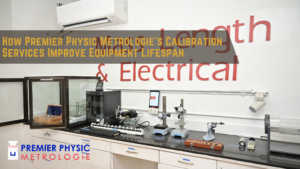| Metrology and Food Safety: Maintaining Quality Standards in the Food Industry In the food industry, ensuring the safety and quality of products is paramount. From farm to fork, a robust system of measurement and calibration plays a vital role in maintaining the highest standards. In this article, we delve into the significance of metrology in ensuring food safety and upholding quality standards in the food industry. Section 1: The Importance of Accurate Measurements In the food industry, accurate measurements are crucial for several reasons. Precise quantities of ingredients, temperature control during cooking and storage, and proper packaging all depend on precise measurements. Metrology provides the tools and techniques to ensure that these measurements are reliable and consistent, guaranteeing the safety and quality of food products. Section 2: Ensuring Hygiene and Contamination Prevention Metrology plays a pivotal role in maintaining hygiene and preventing contamination in food production. From the calibration of temperature monitoring devices to the accurate measurement of cleaning agents and sanitizers, metrology ensures that food processing environments remain clean and free from harmful bacteria or contaminants. Proper calibration of equipment such as thermometers, pH meters, and weighing scales is essential to avoid potential health hazards. Section 3: Monitoring Quality throughout the Supply Chain Metrology is not limited to the production phase alone. It extends throughout the entire food supply chain. From the moment ingredients are sourced to the final product reaching the consumer, metrology provides the means to monitor and maintain quality standards. Accurate measurements and calibration techniques are employed at various stages to detect any deviations or abnormalities, ensuring that only safe and high-quality food reaches the market. Section 4: Traceability and Transparency Metrology enables traceability and transparency in the food industry. With precise measurements and calibration records, it becomes possible to track the origin of ingredients, monitor processing conditions, and document storage and transportation parameters. This traceability enhances food safety by facilitating rapid identification and containment of potential issues, such as foodborne illnesses or product recalls. Section 5: Continuous Improvement and Innovation Metrology encourages continuous improvement and innovation in the food industry. By accurately measuring and analyzing data, businesses can identify areas for optimization, reduce waste, and enhance efficiency. Furthermore, metrology supports the development of new technologies and processes, leading to advancements in food safety practices and the creation of novel products. Conclusion: In the food industry, metrology plays a critical role in maintaining quality standards and ensuring food safety. From accurate measurements and calibration to compliance with regulations and fostering transparency, metrology is the backbone of a robust and reliable food production system. By prioritizing metrology practices, food manufacturers can safeguard consumer health, build trust, and contribute to the overall betterment of the industry. Remember, accurate measurement and calibration are not just buzzwords in the food industry. They are the cornerstones of delivering safe, high-quality food to our tables. |




